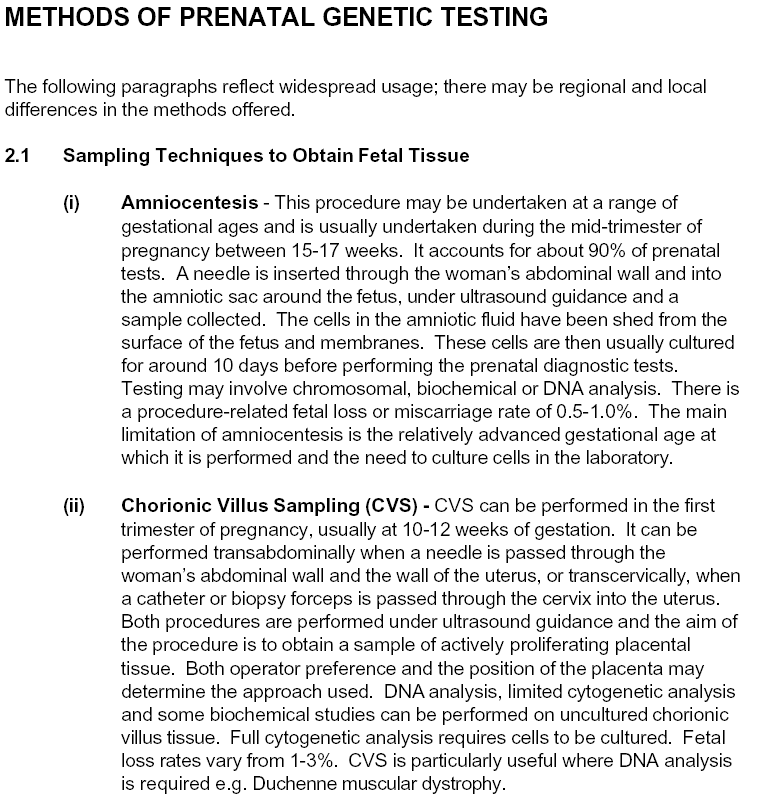

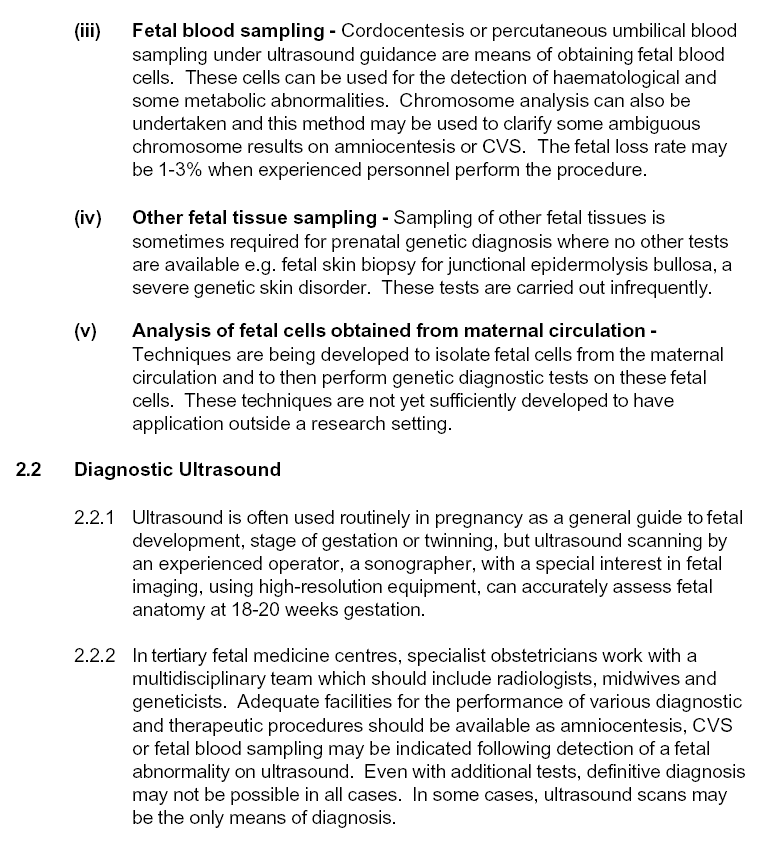
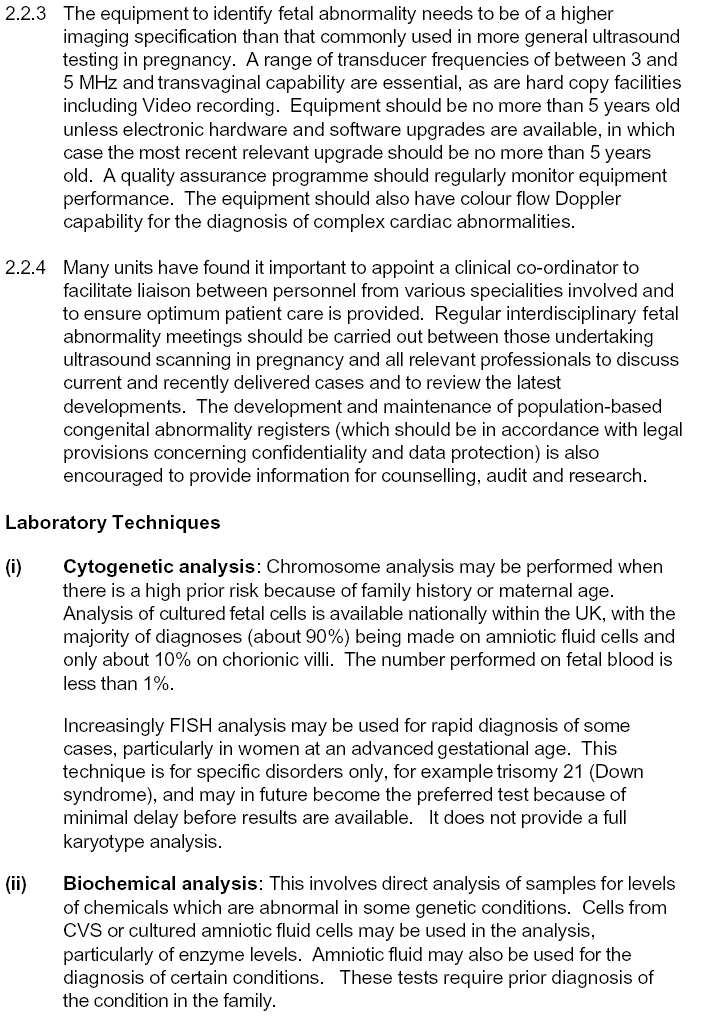
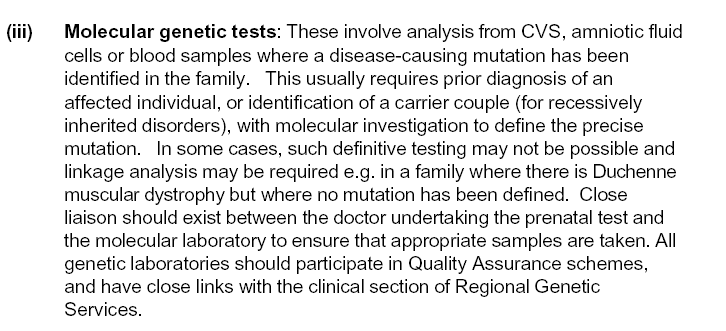
AMNIOCENTESIS: WEIGHING THE RISKS:
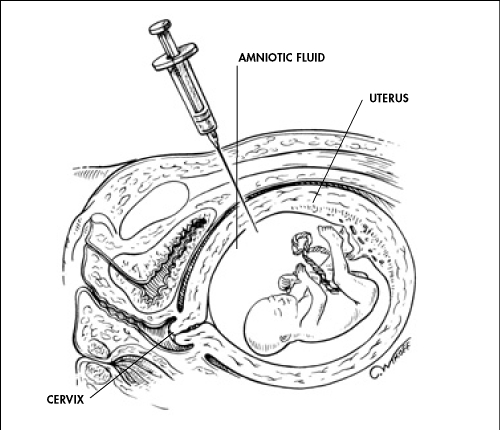
If there's a danger that the baby will be born with a congenital defect,
your doctor will probably recommend amniocentesis to rule the problem
out. This test requires a sample of the baby's cells, which are always
present in the surrounding amniotic fluid. Collecting the sample is not
without risk, since the doctor must insert a needle directly into the
uterus. However, the odds of a mishap are extremely low. When done in
the 16th week of pregnancy, only 1 in 200 procedures results in loss of
the baby.
Chorionic Villus Sampling (CVS) is performed between the 9th and 11th week of pregnancy, It is a test
for chromosomal abnormalities. A small amount of placental tissue is removed from the uterus, using a
thin catheter placed through the cervix with ultrasound guidance. The tissue is then grown in a culture.
The cells are then examined for abnormal chromosomes, both in the number and for certain enzymes.
Cervical cultures for gonorrhea and chlamydia will be done before a CVS is performed. It takes about two
weeks to obtain results.
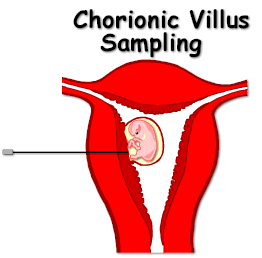
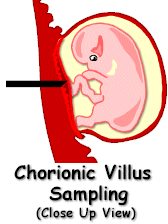
You may be a candidate for CVS if you have had a previous child with Down's syndrome; will be 35 at the time of delivery;
or if you or your partner are carriers of genetic abnormalities such as
Tay-Sachs disease, hemophilia, or lethal enzyme
deficiencies.
The advantage of CVS is that it is performed very early in pregnancy. If a major genetic abnormality is detected, the
pregnancy can be terminated more safely, if you desire that option.
CVS carries a 3 - 5% risk of miscarriage. There have been reports of limb abnormalities in babies whose mothers have had CVS done. However, you
and your doctor should decide if the risks outweigh the benefits of this procedure. CVS should be performed by a highly trained specialist in
maternal-fetal medicine.
The Advisory Committee on Genetic Testing (ACGT);